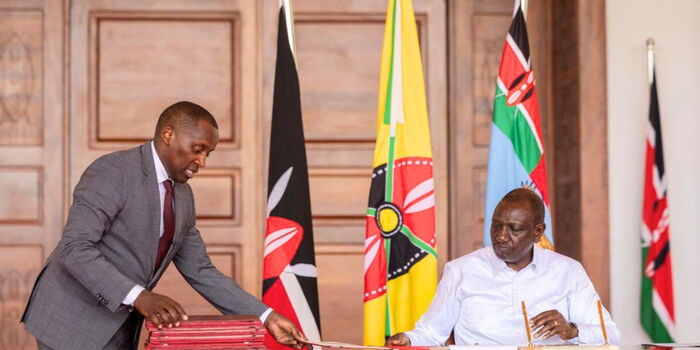Parliament has raised concerns over the circulation of fake clauses in the recently assented Cybercrime law, which have caused public confusion and mistrust. National Assembly Clerk Samuel Njoroge highlighted the issue during the KEPSA–National Assembly Roundtable held on Friday, November 7, in Mombasa.
Njoroge explained that fabricated clauses and distortions in bills before Parliament have become a serious threat to national stability and public confidence in legislative processes. “There are six entities in court on matters that were never part of the Bill,” he noted, stressing that misinformation around the Cybercrime law has spread rapidly on social media.
While Njoroge did not specify the entities allegedly misrepresented, he indicated that the fake clauses have led to unnecessary alarm among citizens. He further revealed that after President William Ruto assented to several laws, counterfeit versions with fabricated content were widely shared, making it difficult for Parliament to clarify the truth. “It was painful to see misinformation spread so fast, and we had no space to clarify the truth. Many people still believe those fake versions,” he said.
Amid the controversy, the High Court has suspended certain provisions of the Cybercrime law. Justice Lawrence Mugambi on Thursday temporarily halted the implementation of Sections 27(1)(b) and 6, which address cyber harassment, pending the resolution of petitions challenging their ambiguity and potential violations of free speech.
In addition, Section 6(1)(j)(a), which allows the government to block websites or applications promoting unlawful activities, inappropriate content involving minors, and atrocities, has also been frozen. These measures aim to ensure that the law is fairly interpreted while addressing public concerns.
Parliament’s warning underscores the growing challenge of fake legal documents circulating online, highlighting the need for vigilance by citizens, media, and social media platforms. Njoroge urged the public to rely on official sources for accurate information on legislative matters to prevent misinformation from undermining trust in national institutions.

